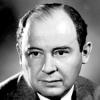After reading through these older threads, there seems to be a lot of misconceptions, and I'd like to get a thread going that definitively answers some questions instead of having conflicting information.
Previous threads:
http://www.longecity...as-a-nootropic/
http://www.longecity...new-nootropics/
http://www.longecity...ethylamylamine/
http://www.longecity...ranium-extract/
First of all, let's try to clear up what compound we are actually talking about.
What is it?
For the sake of sanity, I can only verify that I have taken a chemical compound made/packaged by Primaforce, listed as containing 20mg of 1,3-dimethylamylamine, and have found it to cause my sinuses to be clear. I've also found that it provides energy, motivation, and a clear head without overly stimulating my PNS. It has a relatively short period of action, lasting about 2 hours and then tapering down its effects over the next two hours (4 hours total).
What is it called?
Wikipedia lists it as Methylhexanamine, though it is known by other names:
- 4-methyl-2-hexanamine
- 4-methyl-2-hexylamine
- 2-amino-4-methylhexane
- 1,3-dimethylamylamine
- 1,3-dimethylpentylamine
- 2-Hexanamine, 4-methyl-(9CI)
- Forthan
- Forthane
- Floradrene
- methylhexanenamine
- Geranamine
- Geranium Extract
- DMAA (not to be confused with DMAE)
- Is 1,3-dimethylamylamine actually present in Geranium oil/stems/roots/leaves/whatever? If so, is there any benefits to the full herb based supplement over this synthesized version?
- Would anyone care to theorize why my head feels clearer and my heart rate is lower on 1,3-dimethylamylamine than on ephedrine or Adderall (and far more effective than caffeine which has nearly no mental effect on me), which are listed as being more effective CNS stimulants?
- As far as supplement stacks go, would combining 1,3-dimethylamylamine with curcumin and/or rhodiola rosea be a more effective means of increasing the lengths of the effects? I am basing this question off of the assumption that 1,3-dimethylamylamine increases norepinephrine (NE) in the brain, and that curcumin and rhodiola rosea have MAOI-A activity. If you'd like to theorize about other possible synergies, that would be most appreciated (choline, -racetams, and omega 3 need not be discussed
 ).
). - Is there any indication or studies that normal doses (~20mg every 4 hours) would be more harmful than the equivalent amount of caffeine or ephedrine? How about compared to low doses of Adderall (20mg, time-released)?
- Would there be any recommendation besides nightly supplementation of Magnesium and antioxidants in order to avoid cumulative damage and tolerance?
- If 1,3-dimethylamylamine helps to overcome my ADD/ADHD-PI/SCT/"lack of motivation"/"whatever you want to call it" in a way that is similar to Adderall (with less side effects) would there be a non-stimulant route to fix whatever is broken, instead of covering up the problem by using stimulants? It should also be known that d-amphetamine does nothing to fix my lack of motivation, yet Adderall does.
I find it interesting that a lot of people say that it does not work for them, given that I usually don't have much of a response to that many supplements, yet I clearly do to 1,3-dimethylamylamine.
Edited by zrbarnes, 21 March 2012 - 09:30 AM.
















































